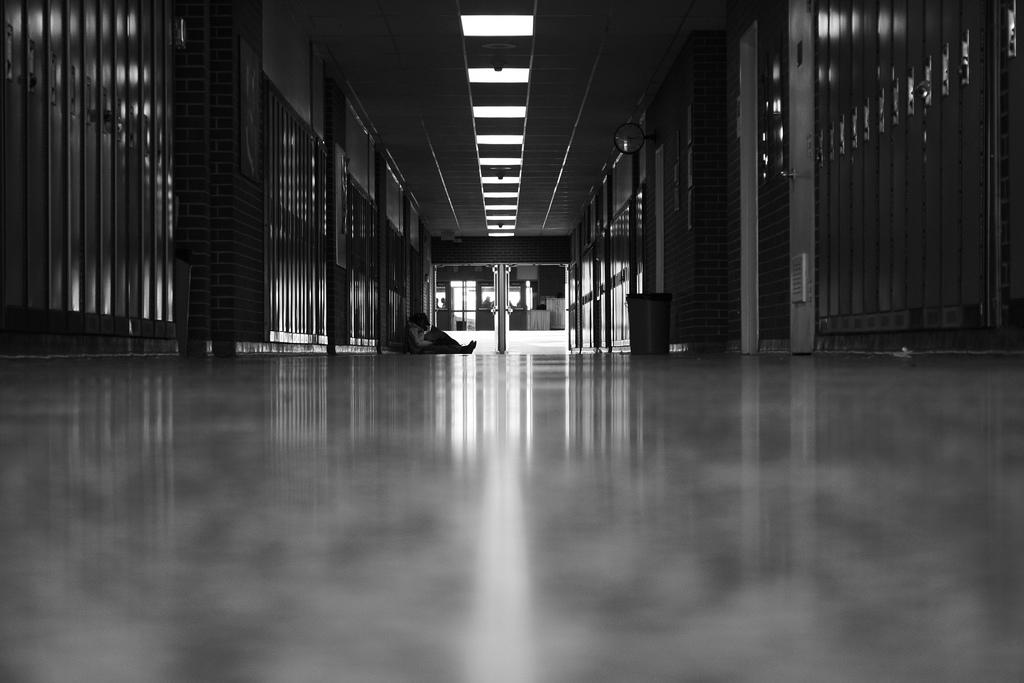Summer is just around the corner, and Urbanites are getting ready to wave goodbye to their teachers for just a few months. But in public schools across the state struggling to cope with the 17 billion dollars cut from the California education budget over the last two years, many students are bidding their teachers a more lasting farewell.
As of March, 23,000 teachers in the state have found the axe hovering over their head. According to ABC, 900 teachers and administrators in San Francisco alone received early notification that the school may not be able to afford them next year. And teachers are not the only resources schools are desperately shedding: music, art, physical education classes, afterschool programs, and basic supplies such as markers and paper are being smothered by red tape.
Comparing Public and Private Schools
Kamini Ramani, a volunteer who helps raise funding for Lowell High School through the Lowell Fund, has one daughter in private middle school and one daughter at public high school Lowell. I asked her about what effects the budget cuts will have on San Francisco public schools. “Overall, there’s going to be 113 million dollars that the San Francisco Unified School District has to cut out of the budget… My older daughter’s high school, Lowell, (has) a 10 million dollar budget, and they’re gong to lose 2.2 off of that.”
Ramani has experience with both the private and public school systems, and though she see the positives and negatives of both, she believes that the private schools’ “price tag is too high… More and more families are not paying 25,000 a year because they just can’t afford to.”
Ramani is ready to face down the daunting numbers and fight for the public school system, which she believes can “deliver a world-class education” despite adversity.
The effect of the budget cuts
Still, the budget cuts have taken their toll. Every Monday afternoon, I walk a few blocks up Masonic to help tutor a group of 30 or so bright, enthusiastic fifth and sixth grade public school students through Breakthrough Collaboration, a federally funded tutoring and supplementary education program. As I help my three “tutees” with their long division and paragraph writing, I can imagine any of these chatty, driven kids in an Urban class in a few years.
But because of the many disadvantages they and other Breakthrough students are forced to overcome—losing time with their teachers as class sizes expand, losing those teachers altogether to the relentless slice of the budget cuts—the odds that they will read Gatsby in the Moon Room or figure out equilibrium in Chemistry Lab II are just not fair. Over the past few months, Breakthrough has helped me come face to face with the injustices embedded in our education system, and every Monday as I leave tutoring, I find myself frustrated and anxious to fix it.
Read more about the loss of teachers at http://www.sfbg.com/2010/04/06/wheres-teacher
Finding solutions
There are no easy solutions to the education crisis, which is only one consequence of California’s overwhelming $20 billion deficit. And despite what I might wish, right now there is no way to bring an Urban education—complete with a 1:1 laptop program, readers carefully constructed to fit teachers’ specific curriculum, and enough art, music, and Physical Education classes for everyone in the school—to all of the students in California who most certainly deserve it.
But as Urban math teacher and a program director at the Aim High tutoring program Richard Lautze put it, “Wouldn’t it be nice if we found out how to even the opportunities? And I know that’s a dream, but I think if we made it a priority, we might be able to get closer than we are.”
Hope for education
So we are not in a hopeless position. There are tutoring programs like Breakthrough and Aim High; innovative fundraising projects like the Novato “School Fuel Drive” which aims to raise $250 for each and every student in their district; and a multitude of other programs tackling the problem of California’s cash-starved education system from within the schools themselves, instead of the snarled legislation which supports them.
Urban students can get involved by tutoring, or raising money, or just letting legislatures know that we care. As a community, Urban has long prided ourselves on our political awareness and engagement. I believe that education should be the chief issue on our minds. If we value the education we are receiving, we all must show that we believe everyone deserves a school, public or private, where they have every opportunity to learn and realize their full potential.

